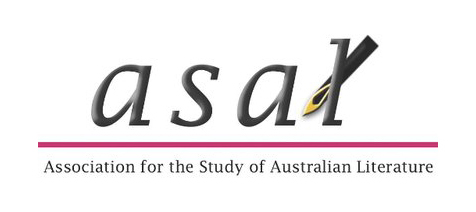06 Mar Call for Papers: Precarious Planet: Disability, Rights and Justice
Conference hosted by South Pacific Association for Commonwealth Literature and Language Studies & Challenging Precarity: A Global Network
29 November – 1 December 2023
University of Wollongong Sydney Campus, Australia
Submission of abstracts: 1 July 2023
In the wake of rising neoliberal extractive processes, contemporary society has reached a crisis point where the democratic ethos is becoming blurred, even as, following the devastation of the Covid-19 pandemic, networks of social care and healthcare have been and continue to be debilitated. At the same time, the habitability of the planet and sustainability of its environment are increasingly associated with forms of privilege or acts of exceptionalism. The roots of many of these dilemmas are at least in part vested in the legacy of Empire and Imperialism. The conditions of life in present times are being determined by the rhetoric of the state-capitalist nexus. The present moment of planet earth as under threat is also an outcome of capitalism’s voracious appetites since what matters for the extractive economy is a perennial source of value-generation even at the cost of disposing of human and natural resources, throwing them into a state of perpetual crisis. Marko Juvan points to the expansionist nature of the neoliberal economy underlining the fact “that the capitalist economy is a world only if it is defined as an interstate system that does not encompass the entire earth, [for then] the system conquers the planet and all areas of humanity” (Juvan 9). The risk we face is that by ignoring the neoliberal commodification of nature, social, political establishments, and health care systems we allow their autonomous status to be downgraded and their functionality to be impaired; we overlook at our peril that these are non-commodity categories, crucial to maintaining the habitability of life on the planet.
Such inhuman accumulative process forget, even deliberately efface the notion of life and the organic life force as having their particular rights and entitlements, thus resulting in the creation of a ‘burnout society,’ rampant disability, denial/suppression of rights, and non-accessibility to networks of justice. Under this new regime, humans and natural resources are devoid of normative and affective renderings and hence at risk of being considered as waste that is replaceable and disposable. The urgent need to address these issues of planetary precarity and survival have induced responses across all humanities and social science disciplines, and catalysed new and revised theories of disability, social justice and human/environmental rights.
It is no wonder that scholars such as Amitav Ghosh, Dipesh Chakrabarty, Imre Szeman, and Achille Mbembe ask us to our reconsider our relationship with the planet, to become more cognizant of the lurking threat of destruction or extinction that awaits us, thus advancing the need to think more collectively, and creating modes of care and repair of what Wai Chee Dimock (2020) terms as the “weak planet”. Likewise, Martha Albertson Fineman (2021) advocates the strengthening of social infrastructures as a turn towards cultures of care for weak, disabled and vulnerable lives; while Judith Butler (2016, 2020) and others argue that vulnerability can be a form of human/environmental resourcefulness, able to build resistance. As the era of the Anthropocene comes under new scrutiny, cultural critics like Ana Fraile-Marcos (2020) and Sarah Ahmed assess new paradigms of othering, resistance and resilience; concepts like decolonial environmentalism, ecomaterialism, and writing the environment frame contemporary debates on climate change and planetary habitability; and precarity as “a theoretical concept of literary and cultural analysis” appears in “critical discourses on literary and visual texts in relation to their social conditions of production” (Wilson, Dwivedi, Gámez-Fernández 2020).
The conference is being convened by Challenging Precarity: A Global Network (CPGN) and the South Pacific Association for Commonwealth Literature and Language Studies (SPACLALS). The organisers invite scholars and experts from disciplines in the humanities, especially in literary, visual and cultural studies, as well as those working in the social sciences, to examine multiple frameworks, methodological approaches, and critical lenses in contextualising the theme “Precarious Planet: Disability, Rights and Justice”, and to provide interventions into the pressing concerns of our present times and future lives. Papers considering the relation between the conference theme and the situation(s) of precarity in the Global South are strongly encouraged. Global and local indigenous Pacific, Aotearoa New Zealand, and First Nations Australian perspectives will be particularly considered.
Suggested topics include, but are not limited to:
- human rights and global inequality
- Indigenous culture(s) and literature(s)
- Pacific/First Nations/Indigenous knowledges as resistance to precarity
- disability as human/animal vulnerability
- visual and literary representations of vulnerability vs resilience
- reading and writing the environment
- affect/emotions, ecology and subjectivity
- hope and utopia vs dystopia and apocalypse
- planetary decolonisation
- environmental catastrophe and planetary crisis
- food and shelter security
- precaritisation of academia
- migration, refugees and xenophobia
- extraction, neocolonialism and petrofiction
- planetary ethics and aesthetics
- queer ecology: non-human queerness as planetary perspective
- pandemics, citizenship, and cultural difference
- environmental and social justice
- ecoprecarity and dystopia
- neoliberalism and (post)colonial precaritisation
- First Nations rights as a global discourse
- Pacific regionalism vs the ‘blue Pacific continent’
- Oceanic studies and Pacific precarity
- Covid-19: science vs ritual and folklore
- Virtual technologies: new exclusions and inclusions
We invite abstracts of no more than 300 words together with a 50-word bionote. Proposed panels of 3-5 scholars from different university affiliations are also welcome. These should include a 300-word topic introduction together with each of the abstracts, underlining how these relate to each other and/or the panel topic.
Timelines
Submission of abstracts: 1 July 2023
Acceptance email: 30 July 2023
Registration
Details of registration fees, and dates, accommodation will be circulated shortly.
Contact
Please submit abstracts and any queries to the conference organisers:
Om Prakash Dwivedi, University of Bennett, India (CP): [email protected]
Michael Griffiths, University of Wollongong, Australia (SPACLALS): [email protected]
Janet M. Wilson, University of Northampton, UK (CP): [email protected]


